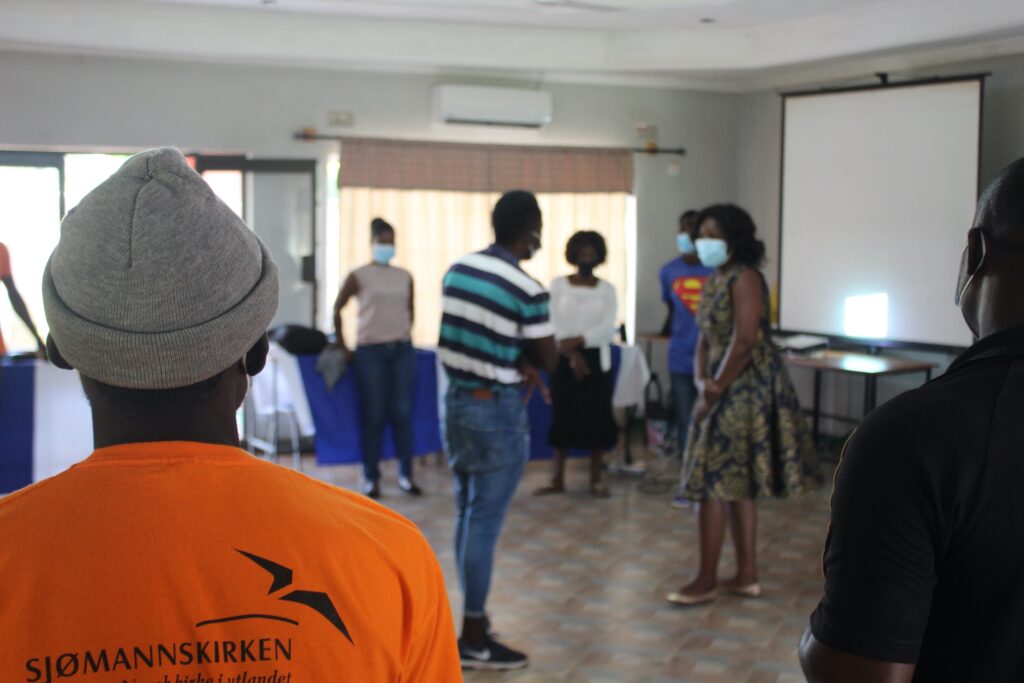In 2016, Art and Global Health Center Africa (ArtGlo) under the Social Inclusion and Diversity program began implementing the Umunthu health care workers project whose primary focus was to deal with health access disparities by fostering understanding and empathy towards LGBTQ+ individuals within healthcare systems and the broader community. Apart from creating a conducive environment for LGBTQ+ people to access health services without fear and discrimination, the Umunthu Healthcare Workers Project facilitated the introduction of new innovative ways of improving quality and inclusion for all.
According to Ella Gondwe, one of the Healthcare worker Champions under this project in Nkhotakota, the project assisted them in generating rapport with the LGBTQ+ persons who were sidelined in the management of HIV/AIDs prevalence. This further helped them to develop better relationships beyond the convergence workshops that the healthcare workers had with the representatives of the LGBTI community. This has significantly increased the number of LGBTQ+ people opening up to access sexual reproductive health services in all the targeted areas.
“The project created a rapport which has assisted in reducing the disparity in the HIV prevalence rate which was remaining constant due lack of inclusion of the high-risk key population,” concurred one of the Healthcare workers from Phalombe.
In response to the assurance that the LGBTQ+ people received, they started to openly flock to health facilities which led to the discovery of more effective ways of treating Anal Warts, one of the prevailing Sexually Transmitted Infections that affect men who sleep with fellow men. Before the project, encountering the disease at the health facility level was rare and as such was not considered as an STI. However, with the increased number of cases due to the opening up of LGBTQ+ people, there was more demand for drugs to treat the infections.
“Upon observation of the high demand for drugs for treating STIs, I lobbied for more drugs at my facility as well as the recognition of Anal warts as one of the major STIs that deserves to have special attention,” expressed Thomas Tsonga, Phalombe Healthcare champion.
The Healthcare workers have attributed the success of the project to the approaches that were used to transform their mindsets as well as the process used to address concerns among stakeholders and partners. One of the Healthcare champions in Thyolo praised the approach which would engage the LGBTQ+ and healthcare workers separately and then proceed to converge both parties in one workshop. This created a platform where both parties ironed out and made commitments towards addressing any obstacles in access to health services.
“The project has managed to fill the gap that we had with health care workers through convergence workshops they we had,” expressed one of the LGBTQ+ people in Dedza district. Their colleague further said that the project has managed to reduce discrimination and has removed self-stigma and isolation since the Healthcare workers themselves were encouraging them to visit their facilities.
In addition, some healthcare workers have also highlighted the ripple effect that the project has had in changing their attitude towards managing other pressing issues in health facilities.
“Our health facility has adopted the problem tree analysis approach to deal with root causes of some of the issues that arise. This has helped us to overcome and tackle issues beyond the project’s scope,” narrated Priscilla Namero, a Healthcare champion from the Mchinji district.
The six-year project directly engaged District Health Management Teams (DHMT), frontline health service providers, and the LGBTQ+ people from seven districts of Nkhotakota, Mchinji, Dedza, Phalombe, Thyolo, Chikwawa, Zomba. It has further engaged healthcare students, community and religious leaders, and health institutional leaders from Blantyre, Nsanje, Mulanje, and Lilongwe to promote an inclusive mindset within and beyond academia.



